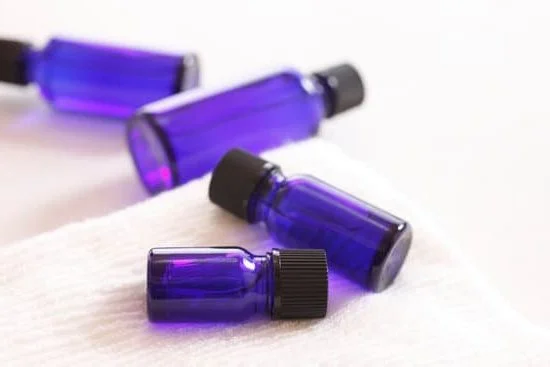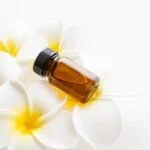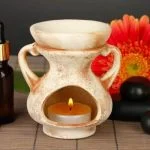How does emotional aromatherapy impact our well-being and mental health? This article delves into the science behind emotional aromatherapy, exploring how it affects the brain and influences our emotions. Essential oils have been used for centuries to promote emotional support, reduce stress, and improve mood. In this comprehensive guide, we will explore the benefits of emotional aromatherapy and how to incorporate it into your daily routine for overall well-being.
Emotional aromatherapy is a holistic approach that harnesses the power of essential oils to support our emotional health. By understanding the science behind how these aromatic compounds affect the brain, we can begin to see the significant impact they can have on our mental and emotional state.
Essential oils offer a natural way to improve mood, reduce stress, and enhance overall well-being. This article will provide a comprehensive guide on the various essential oils that can be used for emotional support, as well as how to use them through inhalation, diffusion, and topical application. Additionally, real-life case studies will be shared to showcase the success stories of individuals who have embraced emotional aromatherapy as part of their wellness journey.
The Science Behind Emotional Aromatherapy
Emotional aromatherapy works by stimulating the olfactory system, which is the part of the brain connected to smell. When you inhale essential oils, the molecules travel through the nasal passage and reach the limbic system, the emotional center of the brain. This area is linked to emotions, memories, and hormonal balance. When essential oil molecules are inhaled, they can directly affect this area of the brain, leading to changes in mood, stress levels, and overall emotional well-being.
One of the key mechanisms behind emotional aromatherapy is the effect it has on neurotransmitters. For example, inhaling lavender essential oil has been shown to increase the activity of gamma-aminobutyric acid (GABA) receptors in the brain, which helps reduce feelings of anxiety and promote relaxation. Similarly, inhaling citrus essential oils like lemon or orange can stimulate the production of serotonin, a hormone that contributes to feelings of happiness and well-being.
In addition to affecting neurotransmitters, emotional aromatherapy also has an impact on physiological functions such as heart rate, blood pressure, and respiratory patterns. Certain essential oils have been found to have a calming effect on these bodily functions, further contributing to their ability to improve mood and reduce stress. Understanding these scientific mechanisms helps explain how emotional aromatherapy can have tangible effects on both mental and physical well-being.
| Benefit | Example |
|---|---|
| Increased activity of GABA receptors | Lavender essential oil for anxiety reduction |
| Stimulated production of serotonin | Citrus essential oils for promoting feelings of happiness |
| Calming effect on physiological functions | Impact on heart rate, blood pressure and respiratory patterns |
Essential Oils for Emotional Support
Essential oils have long been used for their therapeutic properties, especially when it comes to emotional support. Different essential oils have different chemical compositions that can directly affect the brain and help improve mood, reduce stress, and provide overall emotional well-being. Here is a comprehensive guide to some essential oils that are commonly used for emotional support:
- Lavender: Known for its calming and relaxing properties, lavender oil can help reduce anxiety and promote better sleep.
- Bergamot: This citrus-scented oil is often used to uplift mood and reduce feelings of sadness or stress.
- Chamomile: With its soothing aroma, chamomile oil can help ease feelings of irritability and promote relaxation.
- Frankincense: This earthy-scented oil has been used for centuries to promote feelings of peace and overall well-being.
These are just a few examples of essential oils that can be used for emotional support. When choosing essential oils for your needs, it’s important to consider your individual preferences and sensitivities. It’s also recommended to consult with a qualified aromatherapist or healthcare practitioner if you have any specific concerns or health conditions.
In addition to individual essential oils, there are also pre-blended essential oil products specifically designed for emotional support. These blends often combine multiple essential oils known for their emotional benefits, making them convenient options for those looking to address specific emotional issues.
When using essential oils for emotional support, it’s important to keep in mind that everyone responds differently to aromatherapy. Experimenting with different oils and methods of use can help you find what works best for you. Whether through inhalation, diffusion, or topical application, incorporating these aromatic plant extracts into your daily routine can provide valuable emotional support.
The Benefits of Emotional Aromatherapy
Emotional aromatherapy offers a wide range of benefits for overall well-being, including improved mood, reduced stress, and more. By incorporating essential oils into your daily routine, you can experience a positive impact on your emotional state and mental health. Here are some of the key benefits of emotional aromatherapy:
1. Improved Mood: Certain essential oils have been shown to have mood-boosting properties, helping to alleviate feelings of sadness and promoting a more positive outlook. Oils such as lavender, bergamot, and ylang ylang are known for their uplifting and mood-enhancing effects.
2. Reduced Stress: One of the most well-known benefits of emotional aromatherapy is its ability to reduce stress and anxiety. When inhaled or applied topically, certain essential oils can help to calm the mind and body, promoting relaxation and reducing feelings of tension and worry. Oils like chamomile, frankincense, and patchouli are popular choices for stress relief.
3. Enhanced Emotional Balance: Emotional aromatherapy can also help to promote emotional balance and stability. Certain essential oils have adaptogenic properties, meaning they can help the body adapt to stressors and maintain equilibrium. Oils such as clary sage, rosemary, and geranium are known for their ability to support emotional balance.
Incorporating emotional aromatherapy into your daily self-care routine can have a profound impact on your emotional well-being. Whether you choose to use essential oils through inhalation, diffusion, or topical application, the benefits of aromatherapy are numerous and varied. By selecting the right essential oils for your specific emotional needs, you can experience an improvement in mood, a reduction in stress levels, and an overall greater sense of emotional well-being harmonization.
How to Use Emotional Aromatherapy
Inhalation
Inhalation is one of the most popular ways to use emotional aromatherapy. When essential oils are inhaled, they travel through the olfactory system and directly affect the brain, specifically the limbic system which is responsible for emotions, memories, and arousal.
Inhalation can be as simple as taking a few deep breaths directly from the bottle or adding a few drops to a cotton ball or handkerchief and inhaling deeply. Another popular method of inhalation is to add a few drops of essential oils to a bowl of hot water and breathe in the steam.
Diffusion
Diffusing essential oils into the air is another effective way to experience emotional aromatherapy. A diffuser disperses the aroma of the essential oils throughout the room, allowing everyone in the space to benefit from their therapeutic properties. There are several types of diffusers available, including ultrasonic diffusers, nebulizing diffusers, and evaporative diffusers. Each type has its own benefits and considerations, but they all work by breaking down the essential oil particles into micro-molecules and dispersing them into the air.
Topical Application
Using essential oils topically can also be an effective way to experience their emotional benefits. When used in this manner, essential oils are typically diluted with a carrier oil such as coconut oil or almond oil before being applied to the skin.
The best locations for topical application are areas where blood vessels are close to the skin’s surface such as wrists, temples, and behind the ears. The skin absorbs these oils, allowing them to directly enter into your bloodstream and provide both physical and emotional support.
Overall, understanding how to use emotional aromatherapy through inhalation, diffusion, or topical application allows individuals to tailor their approach based on personal preference and specific needs for emotional support. These methods provide easy and convenient ways for anyone looking to harness the healing powers of essential oils for improved well-being.
Case Studies
Case Study 1: Stress and Anxiety Relief
One success story of emotional aromatherapy involves a middle-aged woman who experienced high levels of stress and anxiety due to her demanding job. She decided to try using lavender essential oil after hearing about its calming properties.
By diffusing the oil at her desk and applying it to her pulse points throughout the day, she noticed a significant decrease in her stress levels. The soothing scent of lavender helped her feel more relaxed and centered, allowing her to better handle the pressures of her job.
Case Study 2: Mood Improvement
Another example of the power of emotional aromatherapy is seen in a young adult who struggled with mood swings and low energy. Seeking a natural solution, they began using citrus essential oils like bergamot and orange. The uplifting aroma of these oils helped improve their overall mood and mental outlook. By incorporating these oils into their daily routine through inhalation and topical application, they experienced increased feelings of positivity and vitality.
Case Study 3: Sleep Quality Enhancement
A mother with insomnia also found relief through emotional aromatherapy. After researching different essential oils known for their sedative effects, she started using chamomile and frankincense in a bedtime blend. By diffusing this combination in her bedroom before going to sleep, she noticed a marked improvement in both the quality and duration of her sleep. The calming effect of these oils helped relax her mind and body, leading to a deeper and more restful slumber.
These real-life success stories illustrate how emotional aromatherapy can positively impact various aspects of mental well-being. Through the careful selection and use of essential oils, individuals have been able to find relief from stress, anxiety, mood disorders, sleep disturbances, and more. These case studies demonstrate how personal experiences can highlight the effectiveness of emotional aromatherapy in promoting overall emotional wellness.
Choosing the Right Essential Oils for Your Emotional Needs
Emotional aromatherapy is a powerful tool for addressing various emotional needs, and choosing the right essential oils is crucial for its effectiveness. Each essential oil has its own unique properties that can address specific emotions and moods. Understanding which essential oils to use for different emotional needs can help individuals harness the full potential of emotional aromatherapy.
When choosing essential oils for emotional support, it’s important to consider the specific emotions or moods that need to be addressed. For example, lavender essential oil is known for its calming and soothing properties, making it ideal for reducing stress and anxiety. On the other hand, citrus essential oils like lemon or orange are uplifting and energizing, perfect for boosting mood and motivation.
It’s also essential to consider personal preferences when selecting essential oils for emotional aromatherapy. Some individuals may have a strong connection to a particular scent, which can enhance its emotional benefits. Experimenting with different essential oils and paying attention to how each one makes you feel can help in determining which ones are most beneficial for your emotional well-being.
| Emotion | Recommended Essential Oil |
|---|---|
| Anxiety | Lavender |
| Stress | Lavender or Chamomile |
| Sadness/Depression | Bergamot or Ylang Ylang |
Conclusion
Emotional aromatherapy has been proven to have a significant impact on overall well-being. The use of essential oils for emotional support can not only improve mood but also reduce stress and anxiety, allowing individuals to experience a greater sense of calm and balance in their lives. By understanding how emotional aromatherapy affects the brain, individuals can gain insight into how powerful and effective this approach can be in managing emotions and promoting mental wellness.
The benefits of emotional aromatherapy are numerous, with case studies demonstrating real-life examples of success stories. From improved sleep to enhanced focus and productivity, the positive effects of using essential oils for emotional support are undeniable. Whether through inhalation, diffusion, or topical application, the versatility of emotional aromatherapy allows individuals to integrate its practices seamlessly into their daily routines.
Choosing the right essential oils for your specific emotional needs is key to experiencing the full range of benefits that emotional aromatherapy has to offer. With a comprehensive guide to essential oils for emotional support, individuals can explore a variety of options and find the perfect blend that resonates with them.
Ultimately, by embracing emotional aromatherapy as a part of overall well-being, individuals can cultivate a greater sense of self-awareness and empowerment in managing their emotions and nurturing their mental health.
Frequently Asked Questions
How Does Aromatherapy Help Emotionally?
Aromatherapy helps emotionally by using the scents of essential oils to stimulate the brain, promoting relaxation and reducing stress. Different aromas can evoke specific emotions, helping to improve mood and overall emotional well-being.
How Does Aromatherapy Work in the Body?
Aromatherapy works in the body through inhalation or absorption of essential oils. When inhaled, the scent molecules travel to the olfactory system and then to the brain, affecting emotions and memory. When absorbed through the skin, they can have physical effects like reducing inflammation or pain.
How Does Aromatherapy Work for Anxiety?
Aromatherapy can work for anxiety by using calming scents like lavender or chamomile to reduce stress and promote relaxation. These scents can help to lower heart rate and blood pressure, providing a sense of calmness and peace during anxious moments.

Are you looking for a natural way to improve your health and wellbeing?
If so, aromatherapy may be the answer for you.





